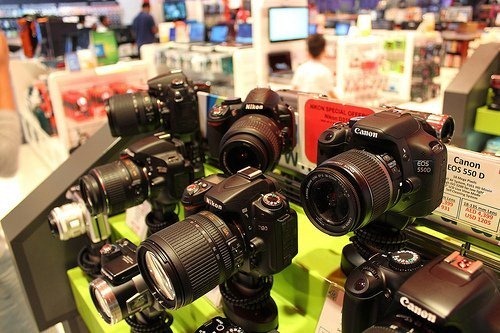First, two quotes from an article by Kirk Tuck:
The vast majority of buyers of all cameras, DSLR’s, mirror less, high end compacts, etc. were hobbyists and amateur photographers who, after years of pursuing some sort of competence in the craft have come to the conclusion that the whole art genre of photography is somewhat of a dead end. There’s no real cheese at the end of the imaging tunnel. Pros take pictures to sell to people, and companies, and they try to make products that are really, really good so they can sell them for good amounts of money. Their motivation comes in trying to please clients. And get paid. Oh, and they might also do it for the sheer exuberance the craft, well practiced, can bring. But the hobbyists mostly had one feedback loop and that was to share their images with like minded practitioners on the web and to bask in the glory of positive feedback.
Like any trend this one grew slowly at first and then accelerated to its tipping point and started the precipitous slide into ambivalence around the end of last year (2012).That was the time frame when I started hearing from my non-professional friends (but very competent photographers) about theirhobby ennui. They were fully equipped but uninspired to move forward. Not just one or two lost souls but a legion of guys who seemed to have lost their photographic drive just around the time that they caught up with, and mastered, the sum of all the technical stuff one needed to know to produce a really well done image. We’d have coffee and they would say to me, "I have all the gear I ever wanted and I just don’t know what I want to shoot." I’d talk about taking portraits but beyond flashing their portrait work onto the world wide web for forum approval most friends understood that without the client along for the ride making standard portraits is a shallow exercise for the most part.
This is were the DLSR camera market is today. Still holding, but going down. Some people realized the innovation every the new model brings is not enough to upgrade. Others found out they will never become professional photographers and there is no point in spending more money on a hobby.
And it’s not just that. People relied on Gizmodo, Engadget and other tech sites for too long to tell them what cameras are good, ignoring the fact that these sites survive because of new purchases. The situation is similar to that of the rating agencies involved in the subprime bust: the more they praised the new cameras, the more money they made via affiliates and advertising.
And the perversion of the situation is this: when Canon or Nikon is going down at the stock exchange, these sites write long op-ed pieces about how the manufacturers need to listen to consumers and create better cameras.
And the manufacturers listened and they found out not everybody wants a bulky DSLR. But the margin for the tech sites from mirrorless and compact cameras is small, so they tend to ignore these types of cameras. The same way they ignore the low-end and the middle-end of the smartphone market.

Also this: https://www.eoshd.com//consumer-dslrs-dead-5-years/
i’ve missed that article. good one. thanx.
Yep, the software side comments made me smile and nod.
/offtopic: any reason to limit comments to Facebook users only on megapixeli?
yea, there are less comments there in the first place, so i figured fb comments will invite people to comment.